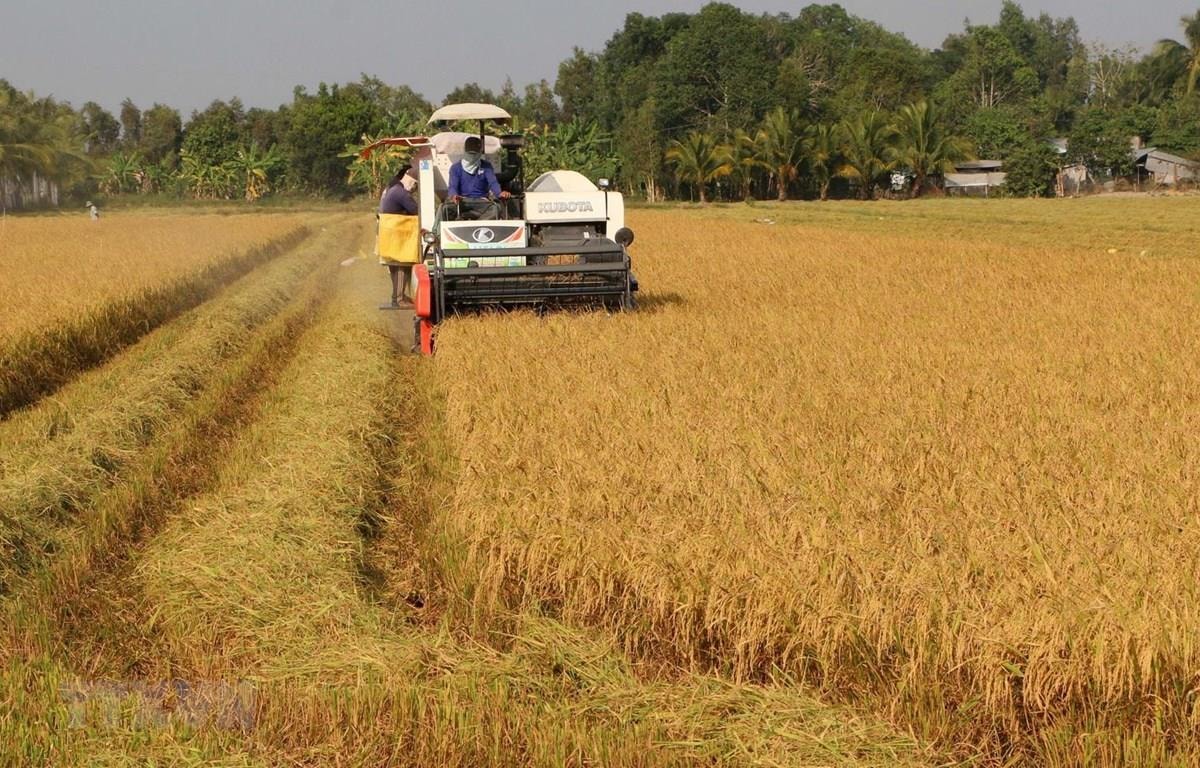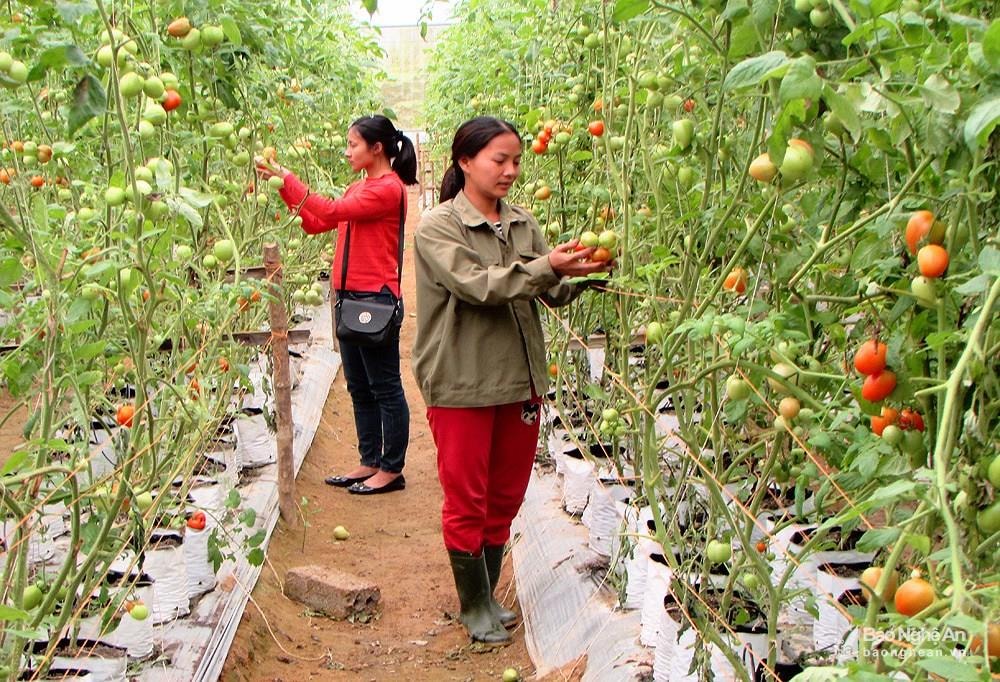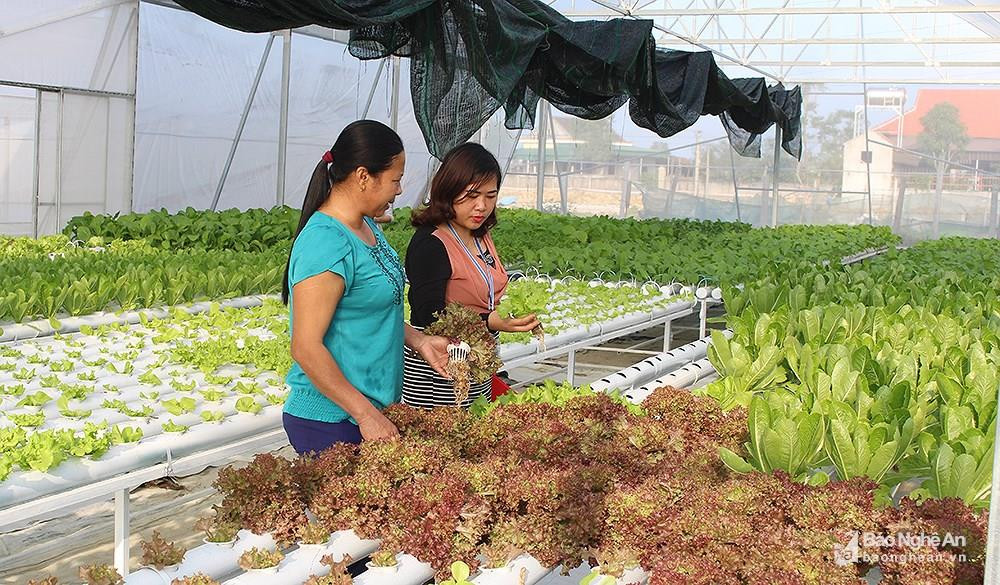In 2020, agriculture will lack about 3.2 million trained workers.
Ms. Nguyen Thi Lan - Director of Vietnam Academy of Agriculture forecasts that by 2020, human resources in this sector will lack about 3.2 million trained workers.
Agriculture has not attracted students yet.
On April 21, in Hanoi, the Ministry of Agriculture and Rural Development coordinated with the Ministry of Education and Training to organize a seminar "Connecting universities and businesses to develop high-quality agricultural human resources."
 |
| Winter-spring rice harvest. Photo: Duy Khuong/VNA |
Ms. Nguyen Thi Lan - Director of Vietnam Academy of Agriculture forecasts that by 2020, the human resources of this sector will lack about 3.2 million trained workers. Not only that, Vietnam's agricultural workers are at an advanced age and lack skilled workers and high-level technical workers.
Meanwhile, in reality, some agricultural sectors have not really attracted students, and enrollment is difficult. Training high-level human resources to develop agriculture and rural areas is an urgent requirement and the biggest challenge for agricultural training institutions.
Although Vietnam has many advantages to develop agriculture, the majority of human resources in agriculture (with a proportion of about 46%) do not meet the requirements of applying new scientific and technological achievements.
Minister of Agriculture and Rural Development Nguyen Xuan Cuong stated that training human resources with sufficient knowledge, skills, qualities and attitudes to meet the requirements and demands of high-tech agriculture and smart agriculture plays an important and decisive role in the cause of industrialization and modernization of agriculture.
 |
| Tomatoes grown in a greenhouse in Con Cuong district. Illustration photo: Minh Hanh |
Training needs to be close to reality.
According to Minister Nguyen Xuan Cuong, universities that train human resources in agriculture, forestry and fisheries need to develop training plans that are closer to restructuring the agricultural sector and developing new rural areas.
Higher education institutions that train human resources in agriculture, forestry and fisheries need to closely coordinate with the Ministry's functional agencies to link training with the implementation of agricultural and rural development programs that the Ministry is implementing to create conditions for students to access reality early, so that knowledge and skills are closely linked to life, so that when they graduate, they can immediately develop in practical conditions.
In addition, the participation of enterprises in the training process of higher education institutions is very necessary. Therefore, it is necessary to clearly recognize the influence and impact of the connection between higher education institutions and enterprises; it is necessary to change the strategy of training human resources in the agriculture-forestry-fishery sector to be able to adapt to the development of agricultural enterprises, ensuring the rapid and sustainable development of the country's agriculture.
Minister of Education and Training Phung Xuan Nha also said that the issue of connecting schools and businesses is not new. This is a regular and inevitable activity in training, connecting supply and demand of human resources.
The connection between schools and businesses does not stop at granting scholarships or creating internship opportunities for graduates, but must also be in many other aspects such as: building training programs, fostering, scientific research and ordering training, determining output standards... Only then will the connection become substantial and effective.
 |
| Investing in hydroponic clean vegetable production in Nghi Lien commune, Vinh city. Illustration photo: Phu Huong |
Ms. Nguyen Thi Lan said that the Academy has cooperated with over 150 businesses to create practical internship conditions for students.
The Academy has increased the practical time of the courses. Especially the vocational internship courses at production and business establishments.
Students are sent to practice at production and business establishments. This will help students access and master modern equipment, technology, techniques and increase their adaptability after graduation.
In addition, the Academy has established close cooperation with partners in Japan, Israel, Korea, etc. in short-term training for students and components in the agricultural production chain abroad.
After the forum, there were more than 30 practical cooperation agreements between universities and businesses in training and supplementing high-quality agricultural human resources./.


